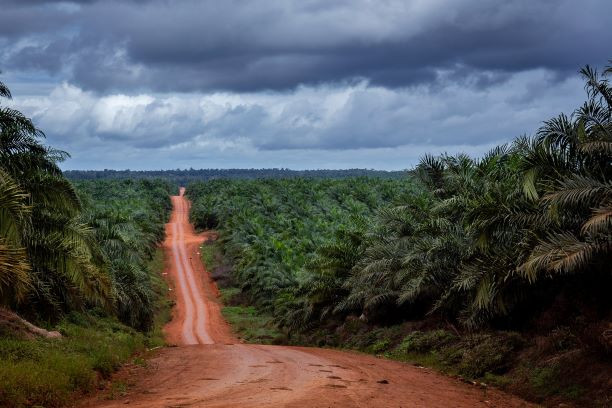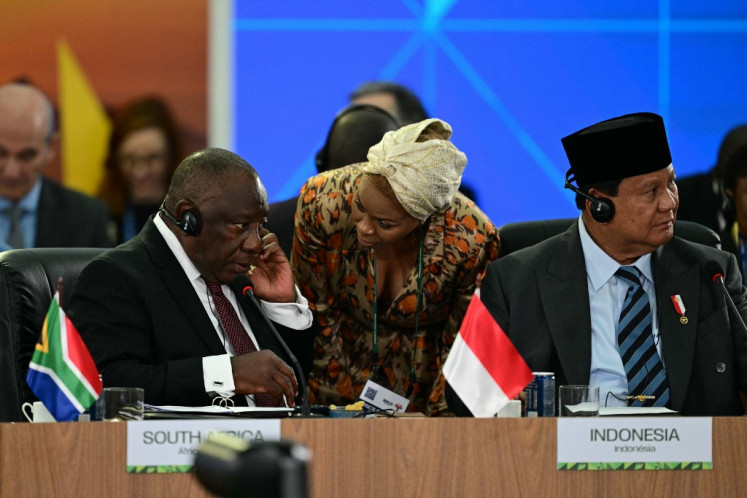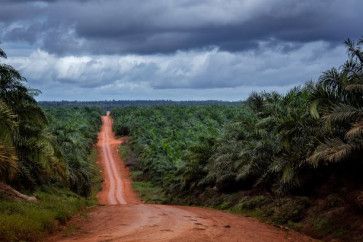Popular Reads
Top Results
Can't find what you're looking for?
View all search resultsPopular Reads
Top Results
Can't find what you're looking for?
View all search resultsBold reform imperative after amnesty for shady palm oil plantations
The revelation of the 3.3 million ha of illegal oil palm estates a few months ago only validated the perception as to just how bad has been the public and corporate governance of the country’s natural resources, notably the lucrative palm oil industry.
Change text size
Gift Premium Articles
to Anyone
C
oordinating Maritime and Investment Affairs Minister Luhut Pandjaitan in his capacity as the chair of the Task Force for Palm Oil Governance Improvement and State Revenue Optimization revealed late last month the government’s plan to grant amnesties and legalize 3.3 million hectares of oil palm plantations, which a comprehensive investigative audit revealed as having been developed in forest areas.
Luhut argued that legalizing the “illegal” plantations and putting them into the tax system and under the supervision of the relevant ministry and government agencies, while punishing them with heavy administrative penalties, would be the least-cost correction in terms of employment and state revenues. This economic and social impact of the legal-washing measure is far less devastating than the risks of moral hazard as the estates also involve a large number of smallholders.
But whatever was the point of the argument, the revelation of the 3.3 million ha of illegal oil palm estates a few months ago only validated the perception as to just how bad has been the public and corporate governance of the country’s natural resources, notably the lucrative palm oil industry.
As the world’s largest producer with an estimated 16.8 million ha of oil palm plantations and one of the biggest consumers, Indonesia is in a strong position to lead the industry and shape the market globally. Further, the country, richly endowed with land suitable for oil palm plantations, is still able to increase its palm oil output, and its large population of over 270 million and rising allows for further expansion of the domestic market for the vegetable oil.
The biophysical aspects, such as rainfall, solar radiation and soil suitability and a massive land mass make Indonesia the best place for palm oil development. Such valuable resources, if well managed with good governance and best agricultural practices could become a main driver to propel the country into to prosperity.
However, like many developing countries, Indonesia is also plagued by the "resource curse" or a paradoxical situation in which a country underperforms economically, despite being home to valuable natural resources. The country has failed to capitalize on the abundance of resource wealth to spur sustained economic growth due to poor governance and mismanagement.
Indonesia is now facing self-inflicted governance issues in the palm oil industry, particularly related to misguided policies in the upstream and downstream processing industries and market intervention. We are now reaping what the government has sown with the series of emotionally charged policies it introduced. The country’s resource mismanagement and poor governance, particularly corruption, have failed to optimize the benefits of palm oil development.



















